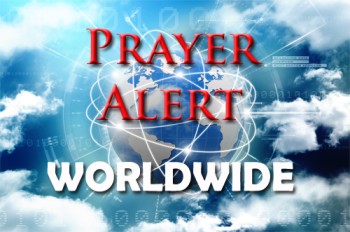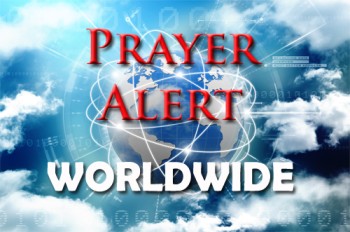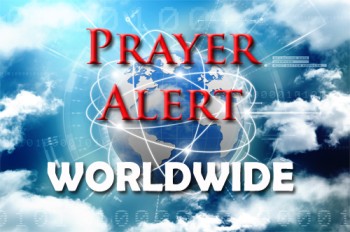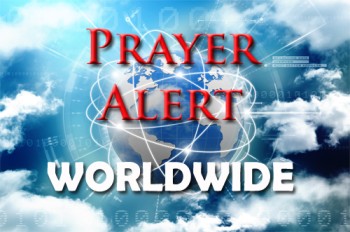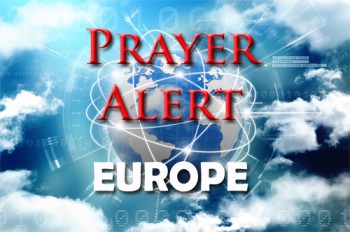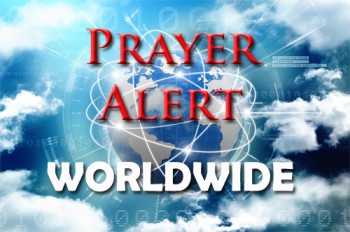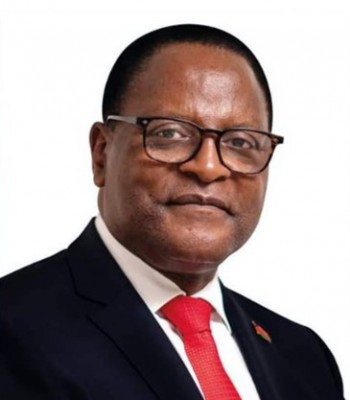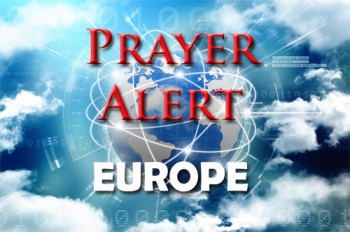Displaying items by tag: presidential election
Iran: Khamenei warns reformist presidential candidate
Ayatollah Ali Khamenei has issued a veiled warning to reformist presidential candidate Masoud Pezeshkian, criticising those who believe progress depends on the USA. Pezeshkian supports restoring the 2015 nuclear deal with world powers, unlike his hard-line opponents who demand terms favouring Iran. Khamenei has also urged high voter turnout for the election on 28 June, which analysts say could benefit Pezeshkian. There was a record low turnout in the parliamentary elections in March, and voters have expressed widespread apathy as Iran faces an economy crushed by Western sanctions and after widespread anti-government protests in recent years. Pezeshkian, previously unknown to the public, has garnered significant support. However, hard-liners remain critical, especially after the collapse of the nuclear deal in 2018. If no candidate wins over 50% of the vote, a runoff may be required.
Comoros: violence follows disputed election result
The announcement on 17 January that Azali Assoumani had been re-elected president of the Comoros resulted in numerous protests and clashes. Demonstrators in the capital, Moroni, vandalised a former minister's house and blocked roads during the day, leading to confrontations with police who used tear gas and made arrests. In the evening, the government imposed a night curfew, citing ‘public necessity’. Officials announced that Assoumani had won 62.97% of the vote, but opposition leaders alleged fraud, including ballot-stuffing and inconsistent results, and jointly demanded the annulment of the result. The UN called for restraint amid mounting post-election tensions and urged the authorities to ensure a safe environment for peaceful assembly and expression of views. The Comoros, a politically volatile three-island chain with a history of coups, experienced a surprisingly low voter turnout of 16%, and discrepancies in vote counts raised concerns about the election's regularity.
Madagascar: re-elected president has to ensure electoral reforms
The USA, Japan, and the European Union have expressed their willingness to collaborate with Madagascar's re-elected president Andry Rajoelina, provided he ensures electoral reforms in the country. The country has a history of election crises; the most notable one, in 2009, ended in a coup that installed Rajoelina as president and led to violence between demonstrators and security forces. He has now been re-elected for a third term, with 59% of the vote, but there were numerous claims of irregularities and vote rigging, and ten of the candidates boycotted the election, leading to a low voter turnout. Rajoelina is being urged to implement electoral reforms that will foster transparency, fairness, and inclusivity in the electoral process - reforms which are crucial for restoring international confidence. Madagascar has one of the highest poverty rates in the world, reaching 75% in 2022. Before the elections, there were fears that social difficulties and the economy, battered by climate change and politics, would get worse if the outcome didn't reflect the will of the people.
Guatemala: continuing protests after presidential election result
Tension is rising in Guatemala, where protests by supporters of president-elect Bernardo Arévalo have run into a second week. They are demanding the resignation of attorney-general Consuelo Porras, who they accuse of plotting to prevent Mr Arévalo from taking office. He won the presidential election by a landslide in August, but just hours later his party was suspended by the supreme electoral tribunal - a move widely viewed as an attempt to stop Mr Arévalo, a political outsider who has campaigned against corruption, from being sworn in as planned. Ms Porras argues that the party was not properly registered, but critics point out that she only launched her investigation after Mr Arévalo secured a spot in the run-off. The protests intensified last week as demonstrators blocked key roads across the country, causing fuel and food shortages and paralysing traffic. The outgoing president, Alejandro Giammattei, condemned the blockades, and asked Mr Arévalo to sit down with mediators sent by the Organisation of American States (OAS), to ensure a peaceful handover of power.
Turkey: presidential election run-off
Opinion polls predicted a win for opposition candidate Kemal Kilicdaroglu in the election. However, President Erdogan received 49.5% of the votes, making it a serious test of his twenty-year iron rule. Turkey’s economy has soaring inflation, a plummeting lira, and a cost-of-living crisis partly caused by Erdogan’s wacky economic policies. Also the shambolic response to February’s earthquake which killed 50,000 and displaced 1.5 million added to Erdogan’s many corruption and mishandling scandals. Could mild-mannered technocrat Kemal Kilicdaroglu, who is capable of uniting opposition parties of left and right, be what Turkish voters want in the run-off on 28 May? He has pledged to rule Turkey ‘with consultations and compromise’. A million Turkish expats living in the USA, Germany and Canada voted in the first round of the election: Kilicdaroglu has vowed to win the second round.
Iran: hard-liner wins presidency in low turnout
The election of Ebrahim Raisi, sanctioned by America for his involvement in mass executions of thousands of political prisoners in 1988, became more of a coronation after his strongest competitors found themselves disqualified from running. That sparked calls for a boycott, and many stayed home. 28.9 million voted out of 59 million eligible voters, and 3.7 million voided their ballots. The low turnout and voided ballots suggest unhappiness with the tightly-controlled election, as activists criticised Raisi's ascension. Those casting ballots received stamps on their birth certificates. Not having a stamp could affect their ability to apply for jobs and scholarships, or to hold onto their positions in the government or the security forces. Iran accused Washington of claiming that last week’s election was neither free nor fair. Amnesty International wants Raisi investigated for crimes against humanity, murder, enforced disappearance and torture. See
Iran: Presidential Election
The outcome of Iran’s presidential election on Friday could reshape the country’s political balance of power – and Tehran’s relations with its allies and rivals.
Conservative candidate Ebrahim Raisi is widely seen as the frontrunner to succeed Hassan Rouhani, the reformist president whose second term is ending. Two low-profile reformist candidates are also vying for Iran’s highest political office.
A win for Raisi, or any of the other conservative candidates, would signal a break from the reform agenda headed by Rouhani and Iranian Foreign Minister Mohammad Javad Zarif since 2013.
Raisi was quoted in local media as saying, “I have come as an independent to the stage to make changes in the executive management of the country and to fight poverty, corruption, humiliation and discrimination.” Yet under his guidance as judiciary chief, more than 620 executions have taken place, the majority originating in unfair trials and minority groups.
That, in turn, could have significant consequences for countries keen to engage Tehran on a range of issues, including the landmark 2015 nuclear agreement, a series of regional conflicts and the detention of dual-nationals.
The Christian church continues to operate with incredible courage at this time, whilst facing ongoing persecution, threats and violence.
Pray: with thanks for the witness of Christians in Iran, their courage and perseverance. Pray that they will know heavenly love and protection.
More /Sources: Persecution.org - International Christian Concern, Open Doors
Malawi: Christian Opposition leader becomes president
Opposition leader Lazarus Chakwera has won Malawi's latest presidential race, defeating incumbent Peter Mutharika with 58.57% of the vote. Chakwera is a theologian, pastor and former President of the Malawi Assemblies of God.
Following his victory, the new president said the election — which was a rerun following last year's poll being scrapped due to voting irregularities — was "a win for democracy and justice". He is the first opposition leader in Northern sub-saharan Africa to win a voting rerun after a result has been overturned due to fraud or irregularity.
He said his heart was "bubbling with joy" at the result.
In his speech after being sworn in, Chakwera said: "Time has come for us to go beyond dreaming, time has come for us to wake up, to arise from slumber, and to make our dreams come true.
"With your help we will restore faith in having a government that serves; not a government that rules, a government that inspires, not a government that infuriates, a government that listens, not a government that shouts but a government that fights for you and not against you."
Mr Chakwera worked as an instructor at the Assemblies of God School of Theology from 1983 to 2000 before becoming the Principal in 1996. He was given the name Lazarus following the death of his two older brothers when they were infants -- convinced that his son was going to live, Chakwera's father named him after the Biblical character who was famously raised from the dead by Jesus Christ.
Speaking to the BBC after being sworn in on Sunday, Chakwera promised to unite the troubled African nation and root out government corruption.
He said: "There's no cause for fear because I will be your president and my policy for inclusivity means we are building a new Malawi for all of us. I'm not a president of a faction, I'm a president of everyone in the country. I want to provide leadership that makes everybody prosper, that deals decisively with corruption and theft of public funds and a leadership that will follow the rule of law."
The new president added: "I do feel like Lazarus, I've come back from the dead, it's been a long journey and we feel vindicated in a way."
Following his victory, on Twitter, he simply wrote: "Thank you, my Lord Jesus."
Praise God for the election of this Christian President who honours and publicly professes his faith in God.
Pray that President Chakwera will quickly win the trust and confidence of all of the people of Malawi.
Pray for God-given wisdom for Lazarus Chakwera as he appoints his government and implements his manifesto.
Pray that the President will develop and strengthen the Malawi economy so the country will not need to depend on foreign aid.
Watch a video of Lazarus Chakwera telling his testimony to God’s grace.
North Macedonia: a challenging April election
Macedonia has launched a renaming of the country’s institutions after a deal with Greece that changed its name to North Macedonia. The deal came into effect on 12 February, after ratification by Greece’s parliament. Following the name change of this former Yugoslav republic, voters will elect a new president. Political rancour and ethnic division among political forces remain rife, yet many hope that offers of accession talks by the EU will end political dissension and stalemate. North Macedonia’s main opposition party, VMRO-DPMNE, nominated law professor Gordana Siljanovska-Davkova as its candidate. He is a harsh opponent of the deal with Greece and of the adoption of the law that made Albanian the second official language in the country. The first round of the election will be on 21 April. The governing SDSM party still has to decide on its candidate. See
